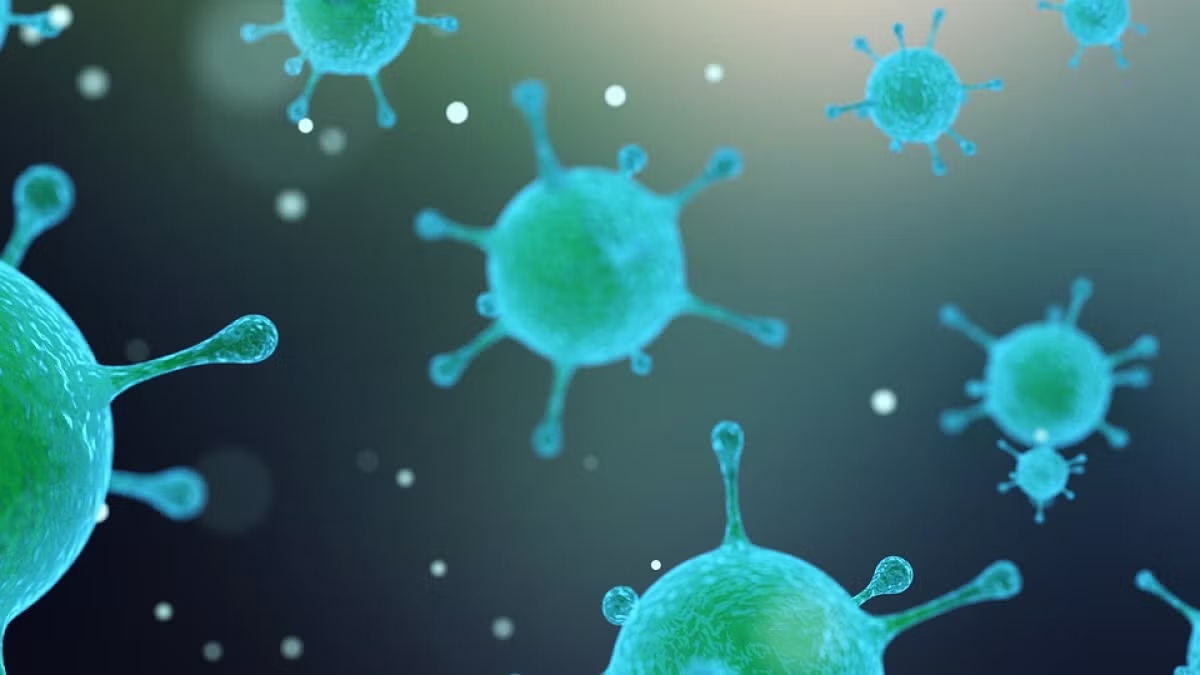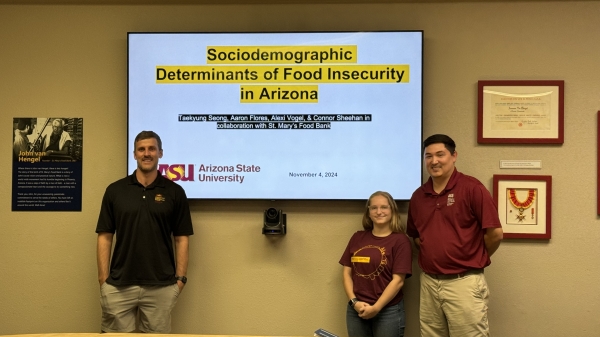ASU hosts biosecurity conference on synthetic viruses, DIY biology, disaster preparedness

In 2002, virologist Eckard Wimmer led a team at the State University of New York at Stony Brook that created a live polio virus from chemicals, using internet information and mail-order DNA.
The work was funded by the Pentagon. The military was interested in developing biowarfare countermeasures. Wimmer, distinguished professor of molecular genetics and microbiology, received death threats and was called “Frankenstein.” A Texas congressman introduced a resolution condemning the journal that published the study, calling it a “blueprint on how to create for release human pathogens on the American people.”
All viruses can be synthesized in the absence of a natural template, Wimmer said.
“That’s very scary,” he said. At the same time, he added, “No, you cannot go into a garage and make a smallpox virus.”
The Arizona Biosecurity Workshop held Dec. 5-6 at Arizona State University was attended by a diverse group of people ranging from scientists to FBI agents and first responders. The discussions were just as diverse, ranging from safety, to ethics, to new innovations.
“We’re looking forward to a couple of exciting and interesting days,” said ASU’s Jamie Winterton, director of strategy for the university’s Global Security Initiative.
The two-day event focused on more than synthetic viruses. Do-it-yourself biology, disaster preparedness, ethical quandaries in biotech and bio information security were other themes. This year’s workshop marks the fourth consecutive year of it being held on the ASU Tempe campus.
“Partnership is key to our success,” said Daniel McGee, the FBI special agent in charge of counterterrorism operations in Arizona. “Weapons of mass destruction threats have the potential for major disruption at a national level-the effect could be catastrophic.”
It’s not that easy to create a synthetic virus, said David Evans, an expert in medical microbiology and immunology from the University of Alberta who synthetically recreated the extinct horsepox virus. There are significant technical challenges. Evans described failures he has experienced.
“This could be done by a state actor,” he said, “but I assure you it’s not something you can do in your garage.”
“The FBI wants everyone from academia to the DIY communities to be security-aware when it comes to threats from people looking to do harm,” said Philip Bates, supervisory special agent with the agency.
“Through biosecurity workshops like this, we can raise awareness and educate various communities about the importance of biosafety and biosecurity,” Bates said. “This is a community effort and the important relationships built during this conference will help in this effort.”
The FBI’s 56 offices nationwide reach out to colleges and universities, the private biotech sector, DIYers and others. Their concerns include academic espionage, insider threats and chemical security.
“Biosecurity is not a new concept, but it is an emerging concern,” Bates said. “But, to be clear, the FBI is in no means trying to deter or impede innovation — it's quite the opposite. We are working to protect assets and interests that impact U.S. national security.”
The conference was co-sponsored by the FBI and ASU’s Watts College of Public Service and Community Solutions.
“You should all read 'Frankenstein,'” Wimmer said. “It’s a remarkable book.”
Top photo by Pixabay
More Science and technology

ASU, St. Mary’s Food Bank partner to tackle food insecurity in Arizona
Arizona State University and St. Mary’s Food Bank (SMFB) have joined forces to create an interactive data dashboard that tracks and maps food insecurity rates across Arizona. This innovative tool…

Study reveals genetic insight into desert survival
The deserts of the American Southwest are home to the Mojave and Sonoran desert tortoises, two seemingly similar yet genetically distinct species of turtles. These tortoises, adapted to different…

Study reveals lasting effects of common weed killer on brain health
Environmental exposure to toxins in the air, water or certain chemicals can increase the risk of ill health effects, including to the human brain.The human brain is an incredibly adaptable organ,…